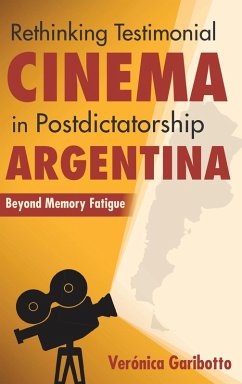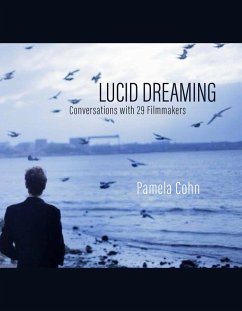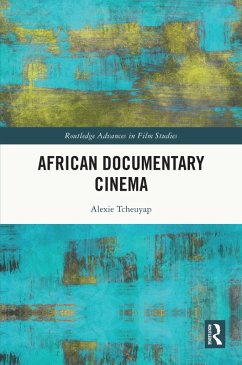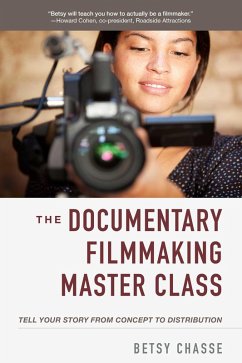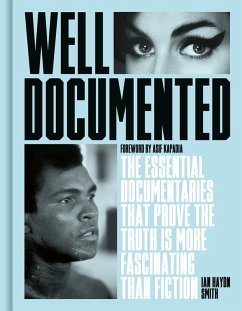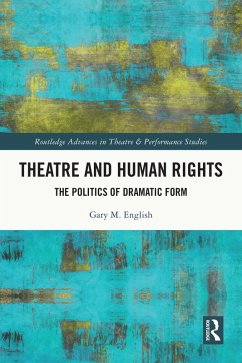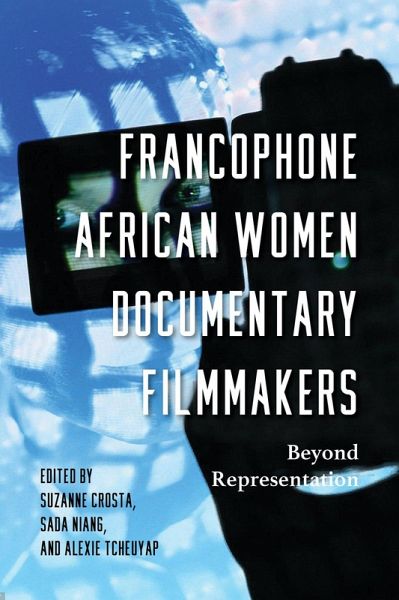
Francophone African Women Documentary Filmmakers (eBook, ePUB)
Beyond Representation
Redaktion: Crosta, Suzanne; Tcheuyap, Alexie; Niang, Sada
Versandkostenfrei!
Sofort per Download lieferbar
29,95 €
inkl. MwSt.
Weitere Ausgaben:

PAYBACK Punkte
15 °P sammeln!
Francophone African Women Documentary Filmmakers is groundbreaking edited collection which explores the contributions of Francophone African women to the field of documentary filmmaking. Rich in its scope and critical vision it constitutes a timely contribution to cutting-edge scholarly debates on African cinemas.Featuring 10 chapters from prominent film scholars, it explores the distinctive documentary work and contributions of Francophone African women filmmakers since the 1960s. It focuses documentaries by North African and Sub-Saharan women filmmakers, including the pioneering work of Safi...
Francophone African Women Documentary Filmmakers is groundbreaking edited collection which explores the contributions of Francophone African women to the field of documentary filmmaking. Rich in its scope and critical vision it constitutes a timely contribution to cutting-edge scholarly debates on African cinemas.
Featuring 10 chapters from prominent film scholars, it explores the distinctive documentary work and contributions of Francophone African women filmmakers since the 1960s. It focuses documentaries by North African and Sub-Saharan women filmmakers, including the pioneering work of Safi Faye in Kaddu Beykat, Rama Thiaw's The Revolution Will Not be Televised, Katy Lena Ndiaye's Le Cercle des noyes and En attendant les hommes, Dalila Ennadre's Fama: Heroism Without Glory and Leila Kitani's Nos lieux interdits.
Shunned from costly fictional- 35mm-filmmaking, Francophone African Women Documentary Filmmakers examines how these women engaged and experimented with documentary filmmaking in personal, evocative ways that countered the officially sanctioned, nationalist practice of show and teach/promote.
Featuring 10 chapters from prominent film scholars, it explores the distinctive documentary work and contributions of Francophone African women filmmakers since the 1960s. It focuses documentaries by North African and Sub-Saharan women filmmakers, including the pioneering work of Safi Faye in Kaddu Beykat, Rama Thiaw's The Revolution Will Not be Televised, Katy Lena Ndiaye's Le Cercle des noyes and En attendant les hommes, Dalila Ennadre's Fama: Heroism Without Glory and Leila Kitani's Nos lieux interdits.
Shunned from costly fictional- 35mm-filmmaking, Francophone African Women Documentary Filmmakers examines how these women engaged and experimented with documentary filmmaking in personal, evocative ways that countered the officially sanctioned, nationalist practice of show and teach/promote.
Dieser Download kann aus rechtlichen Gründen nur mit Rechnungsadresse in A, D ausgeliefert werden.




